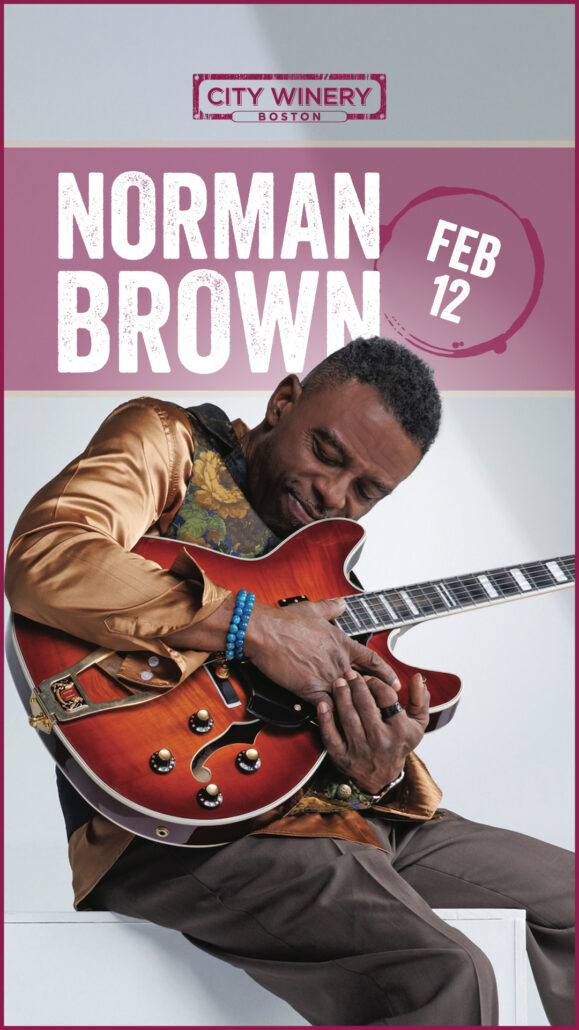Keeping it cool with Ice Cube
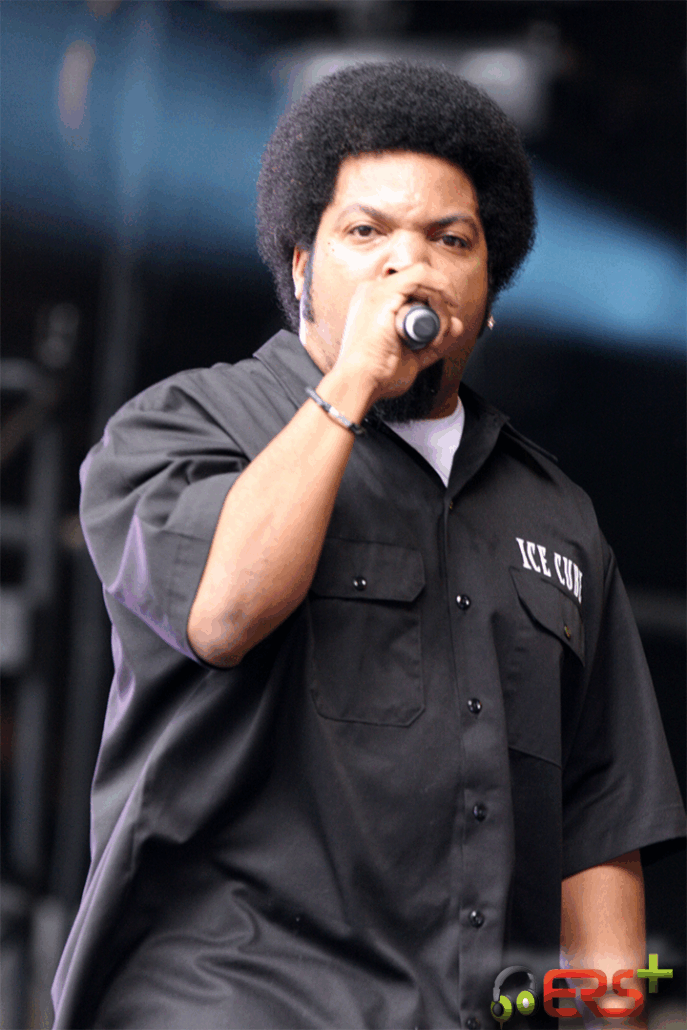
For Black Music Month we’re celebrating one Black musician that we play on ERS+ a week. This week it’s Ice Cube, who’s always keeping it cool.
By Fiona Brown
Biography
Ice Cube was born on June 15, 1969, in Los Angeles, California. He grew up in South Central LA, a neighborhood deeply affected by gang violence and systemic poverty with an older brother and half-sister while his father worked as a groundskeeper at UCLA, and his mother, a hospital clerk.
He began writing rhymes in high school, influenced by the political tensions of the 1980s. Cube attended William Howard Taft High School in Woodland Hills, a suburb of LA, and later studied architectural drafting at the Phoenix Institute of Technology in Arizona.
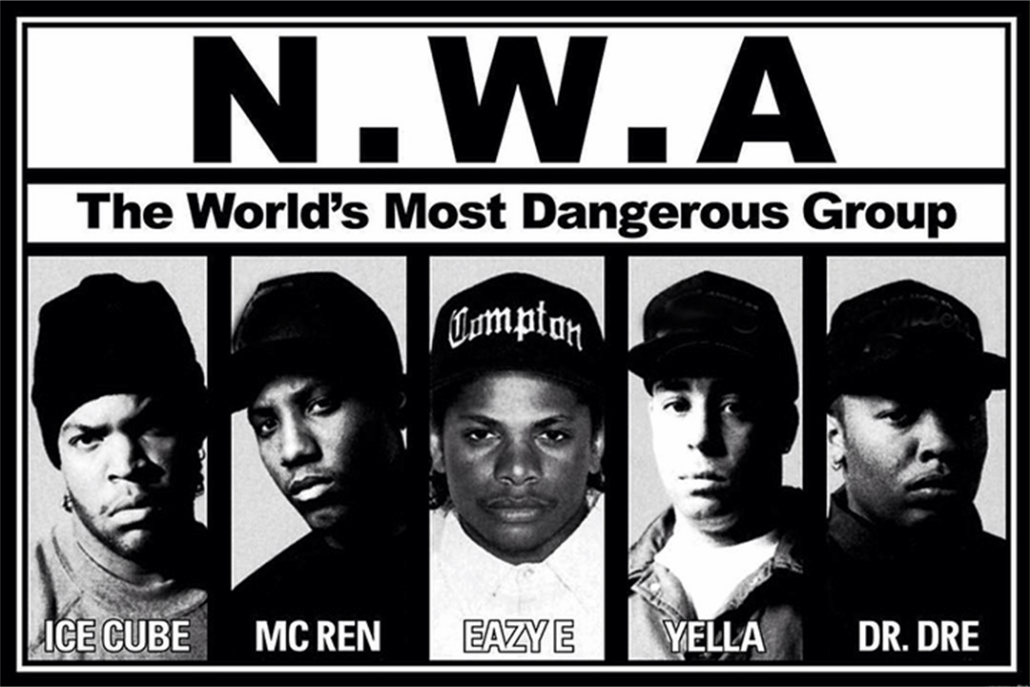
Starting Out and N.W.A.
In 1986, Ice Cube’s professional music career began with a group called C.I.A. (Cru’ in Action!), which included friends Sir Jinx and Kid Disaster. The group focused on party-style raps with some occasional social commentary, something Cube would later become famous for. They gained attention thanks to the support of Dr. Dre, who helped them record a demo and eventually land a deal with CBS Records.
Though short-lived, C.I.A. was a stepping stone that connected Cube with some of the key players in West Coast hip-hop. More importantly, it introduced him to Dr. Dre on a creative level, setting the stage for their future collaboration in N.W.A.
Cube joined N.W.A. (N***** Wit Attitudes) in 1986 alongside Eazy-E, Dr. Dre, DJ Yella, and MC Ren. He quickly became the group’s primary lyricist, penning many of the verses for their 1988 album “Straight Outta Compton.” The group’s raw, unaltered depiction of life in South Central Los Angeles and their denunciation of police brutality made them both infamous and iconic. Songs like “F*** tha Police,” and “Gangsta Gangsta,” brought national attention to the realities of racial profiling and inner-city violence, despite facing widespread censorship and criticism.
However, by 1989, financial disputes with Eazy-E and manager Jerry Heller prompted Cube to leave the group. Though his departure caused tension, it marked the beginning of a solo career that would rival, and arguably surpass, the success he found with N.W.A.
Early Solo Career
Ice Cube moved to New York to work with Public Enemy’s production team, The Bomb Squad. Resulting in “AmeriKKKa’s Most Wanted” (1990), a solo debut that fused East Coast production with West Coast subject matter. The album was a commercial and critical success, praised for its commentary around issues of race, incarceration, and institutional neglect.
Cube continued to release albums with social commentary including: “Death Certificate” (1991), which explored themes of gang violence, Black nationalism, and community healing. “The Predator,” (1992), his most successful album written in the wake of the L.A. riots. It features the hit “It Was a Good Day.” The album blends rage, hope, and cultural pride into a cohesive artistic statement. He also released albums with not so much social commentary like Cube’s album “Lethal Injection” (1993), marking a shift toward G-funk, a move that received mixed reviews from critics but was embraced by fans.
In 1996, Cube formed Westside Connection with WC and Mack 10. The trio released “Bow Down,” which hit No. 2 on the Billboard 200. The album championed regional pride and responded to perceived disrespect from East Coast artists.
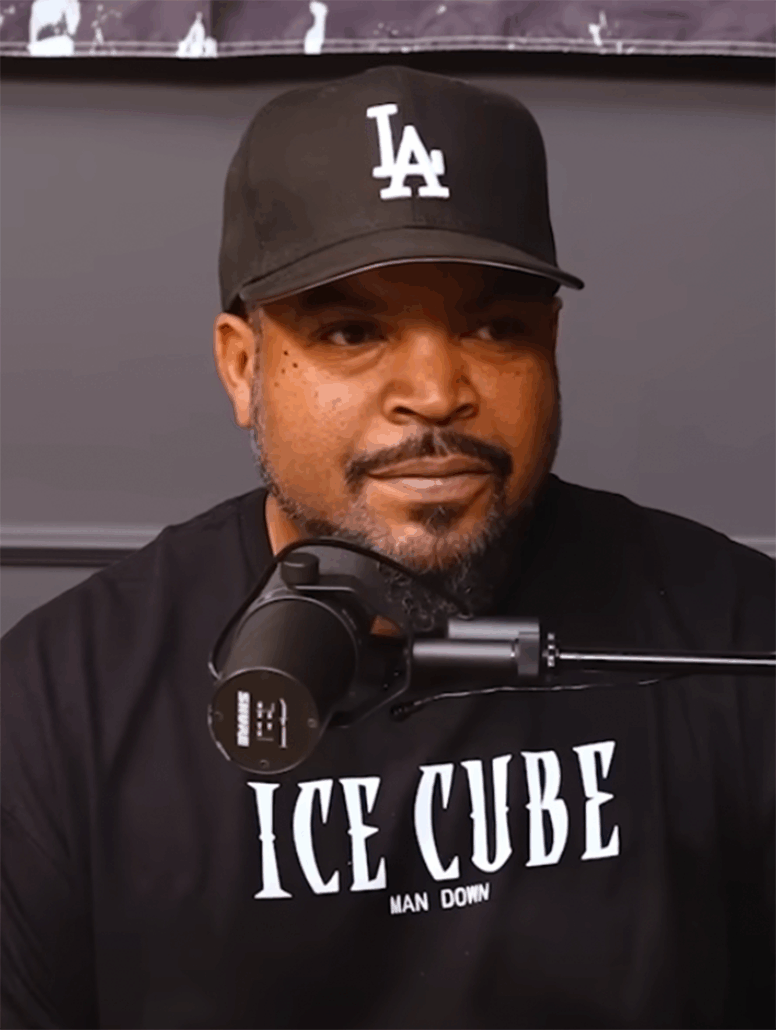
Early 2000’s
Ice Cube returned to solo work with a two-part series: War & Peace Vol. 1 (The War Disc) in 1998 and War & Peace Vol. 2 (The Peace Disc) in 2000. These albums attempted to balance hardcore rap with more accessible, commercial tracks. He briefly reunited with Westside Connection in 2003 for “Terrorist Threats,” a project that combined bravado with street commentary. Despite the group’s popularity, creative tensions eventually led to their disbandment.
“Laugh Now, Cry Later” (2006), was Cube’s first independent album on his own label, Lench Mob Records. The project was a commercial success, debuting in the top 5 on the Billboard 200.
He followed up with “Raw Footage” (2008), an album steeped in critiques of the Bush administration and the media. Then came “I Am the West” (2010), which emphasized West Coast pride and rejected mainstream trends. Cube’s independent approach during this era rearmed his creative control and positioned him as a symbol of artistic longevity in hip-hop.
Present
After a break from music, Ice Cube returned with “Everythang’s Corrupt”(2018). The album’s lyrics reject the Trump era’s cultural divides. Songs like “Arrest the President,” made headlines for their bluntness and urgency.
In 2020, Cube joined fellow West Coast legends Snoop Dogg, Too $hort, and E-40 to form Mount Westmore, a supergroup that dropped their debut album in 2022.
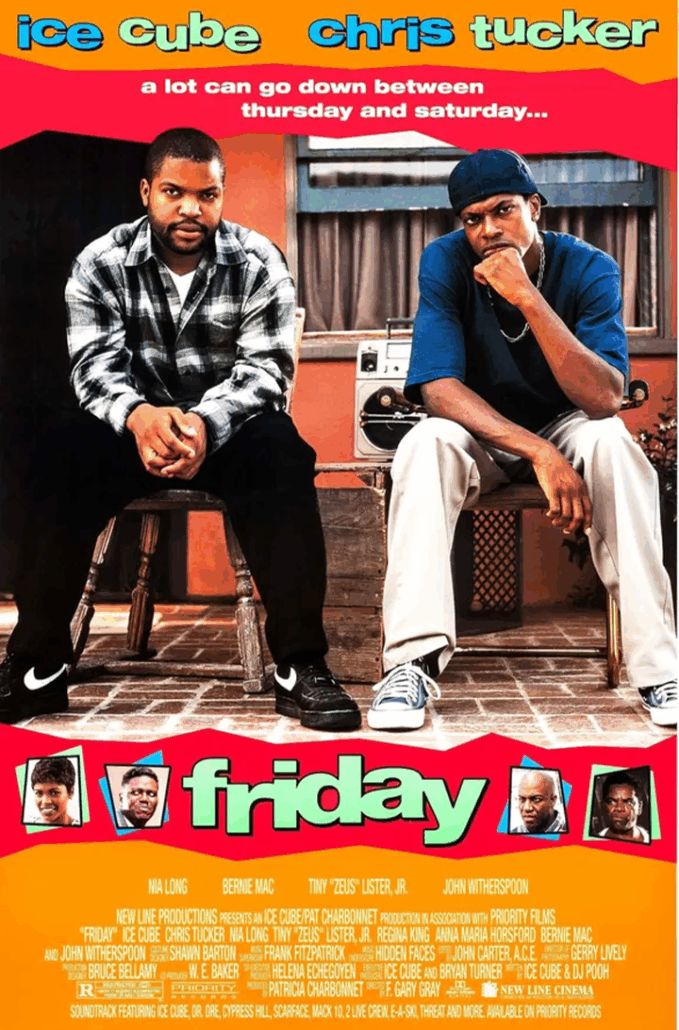
Film and TV
Ice Cube has been involved in several documentary and television projects, beginning in 1991 when he played Doughboy, in John Singleton’s hit “lm Boyz in the Hood.” He’s acted in dramas, such as “Trespass,” and “Higher Learning,” along with comedies like Friday, the screenplay of which he co-wrote. He was featured in the 2015 N.W.A. biopic “Straight Outta Compton,” produced by Cube himself. The film received critical acclaim and helped reintroduce Cube’s story to a new generation.
Cube has explored television both as a producer and actor. He co-created and starred in “Are We There Yet?,” a sitcom adaptation of his 2005 film. He has also appeared in multiple BET and VH1 specials and has worked to bring more Black-led content to mainstream platforms.
Personal Life
Ice Cube married Kimberly Woodruff in 1992, and the couple has four children together. For the most part, Cube keeps his personal life private, focusing public attention on his work.
A practicing Muslim since the 1990s, Ice Cube has long expressed interest in faith and community activism, although he keeps his spiritual life relatively low-key. He’s also passionate about sports, founding the BIG3 basketball league in 2017, a 3-on-3 league for retired NBA players. Despite his tough persona, Ice Cube is a family-oriented, thoughtful gure whose career has been marked by consistency, independence, and impact.
Who Ice Cube’s Influenced
Ice Cube’s fearless lyricism and political messaging paved the way for artists like Kendrick Lamar, Tupac Shakur, Nas, and J. Cole. His ability to balance storytelling with social critique became a blueprint for conscious rap.
Beyond music, Cube influenced the idea of rappers transitioning into other industries. By refusing to be boxed in, he helped expand the role of the rapper in American culture, from entertainer to entrepreneur and activist. His successful pivot to acting and business inspired gures like 50 Cent and Ice-T.
Awards and Honors
Ice Cube has received numerous accolades across entertainment sectors. In music, his solo work and contributions to N.W.A earned him widespread recognition. In 2016, N.W.A was inducted into the Rock and Roll Hall of Fame, with Ice Cube delivering a memorable acceptance speech highlighting hip-hop’s cultural impact and his late friend and co-creative Eazy-E, who passed away from HIV in
early 1995.
In film, Cube has been nominated for and won several awards, including BET Comedy Awards and MTV Movie Awards. His production company, Cube Vision, has produced many successful albums. He was also honored with a star on the Hollywood Walk of Fame in 2017, celebrating his legacy in both music and cinema.
Spotlight Tracks
“F*** tha Police” (1989)
This N.W.A. song ranks at #10 on Rolling Stone’s Best Protest Songs of all Time list, and for good reason. The hard-hitting police diss track highlights the police brutality and racial profiling that the LAPD was especially infamous for at this point in time. Mimicking a court proceeding, the track concludes with the jury finding the entire police department guilty after testimony from Cube, MC Ren, and Eazy-E.
“It Was a Good Day” (1992)
This track from “The Predator,” is one of Ice Cube’s most iconic songs. Unlike his more aggressive tracks, this one paints a mellow picture of a rare peaceful day in South Central LA. It’s a timeless piece of storytelling that blends humor, realism, and optimism.
“No Vaseline” (1991)
Considered one of the greatest diss tracks of all time, this song from Death Certificate targets his former group N.W.A. with sharp, personal bars. It’s a masterclass in lyrical takedown and shows Cube’s condense, skill, and unaltered voice. Though lauded, this track is also laden with controversy, mainly due to Cube’s use of racial slurs against his former group mates, as well as his repeated derogatory references to their manager’s Jewish heritage.
